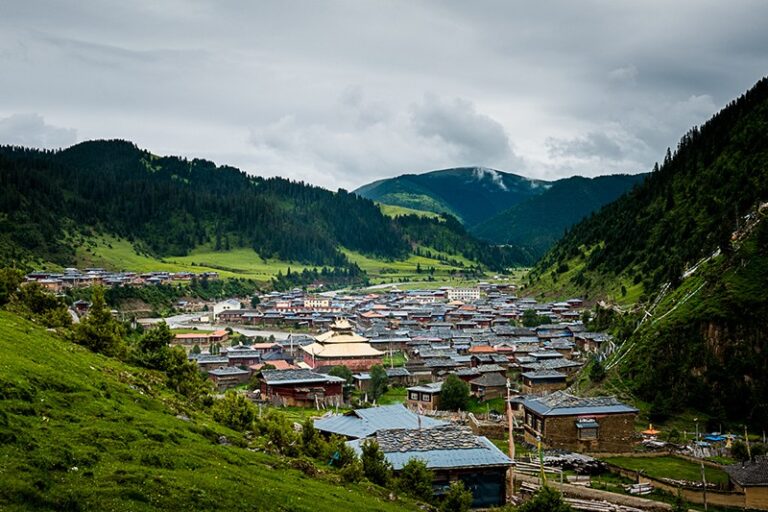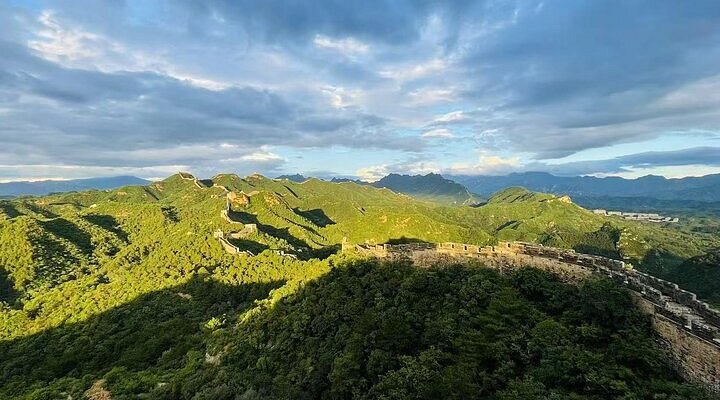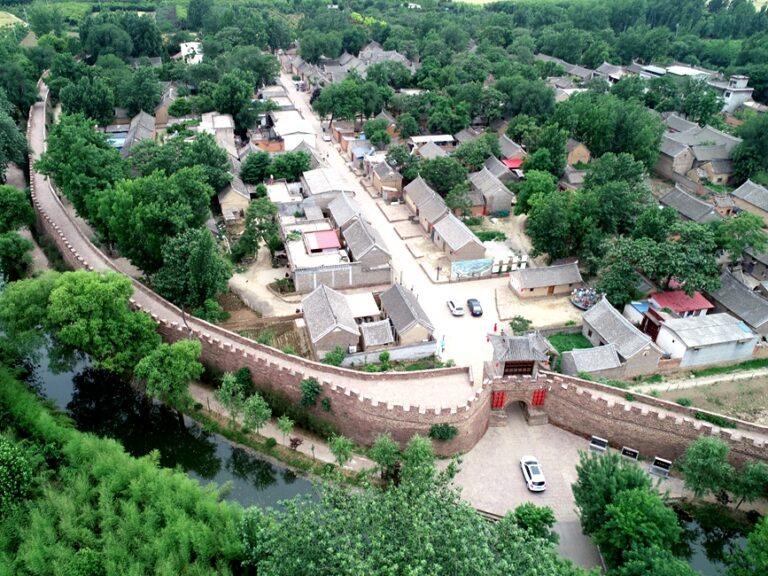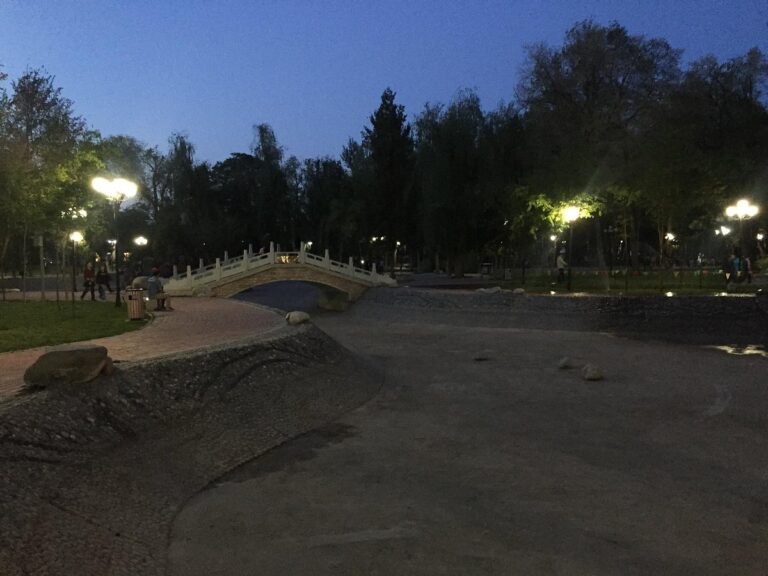Captivating Deyang Pangtong Cimu: Dive into the Heart of Sichuan’s Heritage
An Essential Guide to Visiting Deyang Pangtong Cimu
In This Guide
- An Essential Guide to Visiting Deyang Pangtong Cimu
- The Rich History of Deyang Pangtong Cimu
- Main Highlights: What to See at Deyang Pangtong Cimu
- Planning Your Visit: A Practical Guide
- Tickets, Hours, and Booking
- How to Get There
- Local Cuisine and Accommodation
- Frequently Asked Questions
- Final Thoughts on Your Trip
Nestled amidst the verdant hills of Deyang, Sichuan, the Deyang Pangtong Cimu (庞统祠墓) stands as a poignant tribute to one of the Three Kingdoms’ most intriguing figures—Pang Tong, a brilliant strategist and advisor to Liu Bei. Located just 15 kilometers from the city center, this historical site offers not only a glimpse into the past but also a serene landscape that echoes with the whispers of ancient battles and sagas.
Pang Tong, often referred to as “Feng Chou” (凤雏), or “Phoenix Chick,” met his end on the battlefield, a tragic hero whose contributions to the Shu Han dynasty are immortalized in both history and folklore. The shrine and tomb complex, constructed by Liu Bei himself shortly after Pang Tong’s untimely death in 214 AD, is a meticulously preserved site showcasing traditional Chinese architecture, surrounded by ancient cypress trees that add to its majestic aura.
Visitors to the Pang Tong Cimu will find themselves enveloped in a rich tapestry of culture and history. The site consists of several distinct structures, including the main hall, the “Ershi Hall,” and the “Qifeng Hall,” each dedicated to honoring Pang Tong’s legacy alongside his renowned contemporary, Zhuge Liang. The intricate stone carvings, historical artifacts, and the serene atmosphere make it a compelling destination for those seeking to explore the depths of China’s Three Kingdoms era.
Beyond its historical significance, the surrounding area is a treasure trove of natural beauty and local culture. The ancient roadways that once served as vital trade routes now provide pathways for modern-day adventurers. The nearby Fenchu Village, known for its vibrant customs and traditional architecture, invites visitors to experience the rustic charm and hospitality of Sichuan’s countryside.
Whether you’re a history buff, a cultural enthusiast, or simply in search of a tranquil retreat, the Deyang Pangtong Cimu offers a unique experience that bridges the past and present. Prepare to embark on a journey through time, as you walk in the footsteps of legends and immerse yourself in the rich heritage of one of China’s most captivating historical epochs.
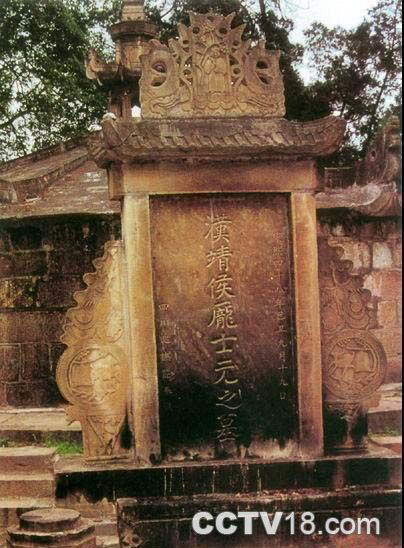
Deyang Pangtong Cimu.
The Rich History of Deyang Pangtong Cimu
Nestled in the lush landscape of Deyang, Sichuan, the Deyang Pangtong Cimu (庞统祠墓) stands as a solemn tribute to the influential strategist and military figure, Pang Tong, who served as a key advisor to Liu Bei during the tumultuous Three Kingdoms period (220-280 AD). This memorial complex, located approximately 15 kilometers from Deyang city, is a significant cultural landmark and an embodiment of the rich historical tapestry of the region.
Pang Tong, often referred to by his courtesy name “Feng Chu,” played a pivotal role in Liu Bei’s quest for power in Shu Han. His strategic acumen was instrumental in several military campaigns, particularly during the conquest of Yi Province. Tragically, Pang Tong met his demise in 214 AD while leading troops in battle, struck down by an enemy arrow. In honor of his contributions, Liu Bei commissioned the construction of the memorial, which includes an elaborate shrine and his burial site.
The architectural design of the Pangtong Cimu reflects traditional Chinese aesthetics, harmoniously blending stone and wood structures. The complex comprises several key components, including the main hall, the “Two Masters Hall” (二师殿), and the “Phoenix Roost Hall” (栖凤殿). Each section is adorned with intricate carvings and historical artifacts, including sculptures of Pang Tong and his esteemed colleague Zhuge Liang, showcasing the reverence held for these figures in Chinese history. Surrounded by ancient cypress trees, the site exudes a sense of tranquility and solemnity, making it a fitting memorial for a man of such strategic brilliance.
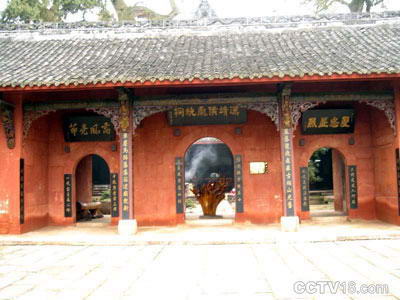
Deyang Pangtong Cimu.
The historical significance of the Pangtong Cimu extends beyond its architectural beauty. It is situated near the ancient Baima Pass, a critical gateway that has witnessed the ebb and flow of armies and the shifting tides of power throughout Chinese history. The surrounding area is rich with remnants of the Three Kingdoms era, including the famed Luofeng Slope, where it is believed Pang Tong fell in battle. This connection to his life and death adds a layer of poignancy to the memorial.
In contemporary times, the Pangtong Cimu has become a focal point for cultural tourism, attracting visitors eager to explore the legacy of the Three Kingdoms. The local government has made efforts to preserve the integrity of the site, highlighting its historical importance and promoting awareness of the rich cultural heritage of the region. Events and festivals are held annually, celebrating Pang Tong’s contributions and the enduring spirit of the Shu Han dynasty.
As a testament to the resilience of memory and the significance of cultural legacy, the Deyang Pangtong Cimu remains a vital part of Sichuan’s historical narrative, inviting all who visit to reflect on the life of a remarkable strategist and the era of the Three Kingdoms.
Main Highlights: What to See at Deyang Pangtong Cimu
Nestled in the scenic landscape of Deyang, the Deyang Pangtong Cimu (庞统祠墓) serves as a poignant tribute to the legendary strategist and military leader Pang Tong from the Three Kingdoms period. This culturally rich site is approximately 15 kilometers from Deyang city center, making it an accessible destination for history enthusiasts and travelers alike.
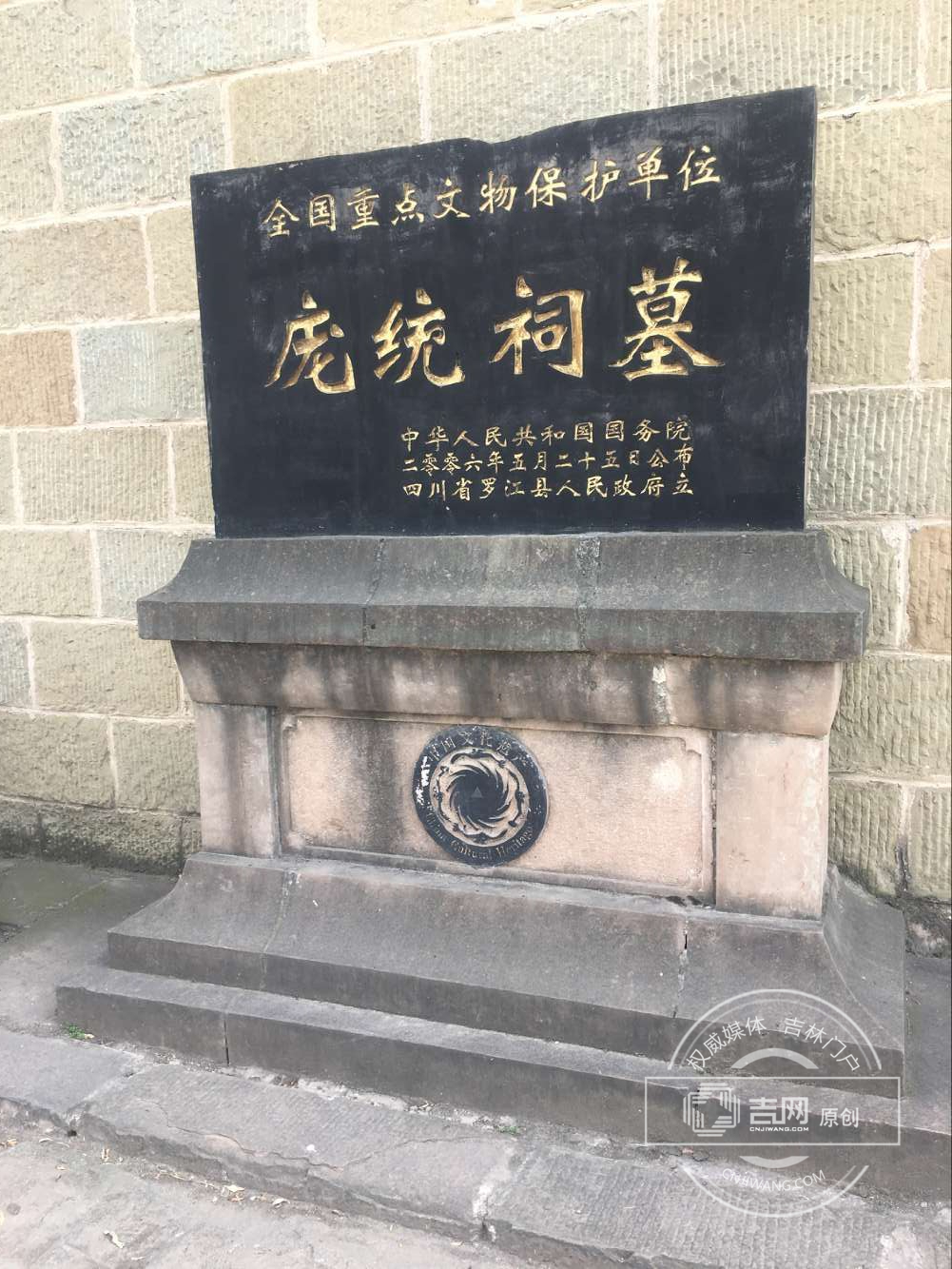
Deyang Pangtong Cimu.
One of the most striking features of the Pangtong Cimu is its unique architectural design, which reflects the elegance and solemnity of ancient Chinese memorial structures. The site is comprised of several key components, including the main hall, the Ershi Hall dedicated to both Pang Tong and Zhuge Liang, and the Qifeng Hall, where the statue of Pang Tong resides. The intricate stone carvings and the majestic stone columns create an atmosphere of reverence and admiration.
Surrounding the memorial are ancient cypress trees, some over 1,800 years old, known as the “Zhang Fei Cypress,” said to have been planted by the famed warrior Zhang Fei in memory of Pang Tong. These trees add a mystical charm to the site, enhancing its tranquility and beauty, while the lush greenery offers a perfect backdrop for contemplation.
The site is not just a memorial but a significant historical landmark. It is situated along the ancient Shu Road, an important route used during the tumultuous Three Kingdoms era, where many battles were fought and alliances were forged. Visitors can explore the nearby ancient pathways that lead to other historical sites, including the famous Luofeng Slope, where it is believed Pang Tong met his end in battle.
Cultural events and festivals are often held at the Pangtong Cimu, especially on the anniversary of Pang Tong’s birth, celebrated with traditional ceremonies that attract both locals and tourists. This blend of historical reverence and vibrant local culture makes the site a lively hub for those interested in the legacy of the Three Kingdoms.
Whether you are a fan of history or simply seeking a serene place to reflect amidst nature, the Deyang Pangtong Cimu offers a captivating glimpse into China’s rich past, making it a must-visit destination for any traveler exploring Sichuan province.
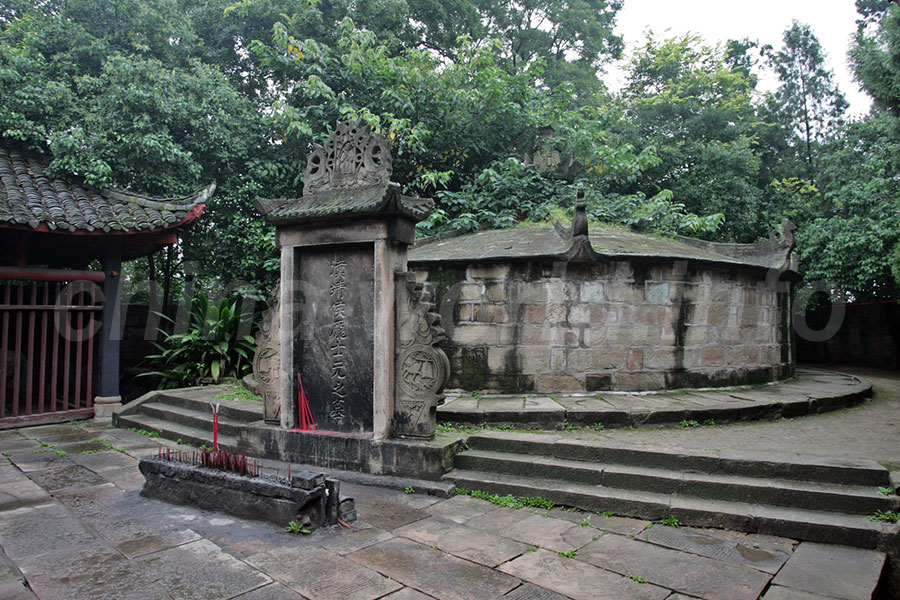
Deyang Pangtong Cimu.
Planning Your Visit: A Practical Guide
Practical Guide to Deyang Pangtong Cimu (庞统祠墓)
Visiting Deyang Pangtong Cimu, an important historical site dedicated to the renowned strategist Pang Tong from the Three Kingdoms period, is a journey steeped in rich culture and breathtaking scenery. Here’s everything you need to know for an enriching visit.
Getting There
Deyang Pangtong Cimu is located approximately 15 kilometers from Deyang city center, in the Luojian District, near the Baima Pass. The site is accessible by car or local transportation services. If you’re driving, take the S1 Expressway for the fastest route. Public transport options include buses from Deyang city to Baima Pass, where the site is situated.
Opening Hours
The museum and tomb are open daily from 9:00 AM to 5:00 PM, extending to 5:30 PM during public holidays such as the Lunar New Year and National Day. It’s advisable to check for any seasonal changes in hours before your visit.
Admission Fees
Entrance to the site is affordable, typically around CNY 40 (approximately USD 6). This fee grants you access to the main hall, the memorial hall dedicated to Pang Tong and Zhuge Liang, and the surrounding gardens rich with ancient cypress trees that add to the site’s serene atmosphere.
What to Expect
Architectural Highlights: The tomb and shrine are designed in a traditional style, featuring stone walls and intricate carvings that reflect the architectural brilliance of ancient China. Key areas to explore include:
– Main Hall: Dedicated to the worship of Pang Tong and his mentor, Zhuge Liang.
– Qifeng Hall: Showcases a statue of Pang Tong.
– The Tomb: A striking structure resembling a general’s helmet, symbolizing Pang Tong’s legacy.
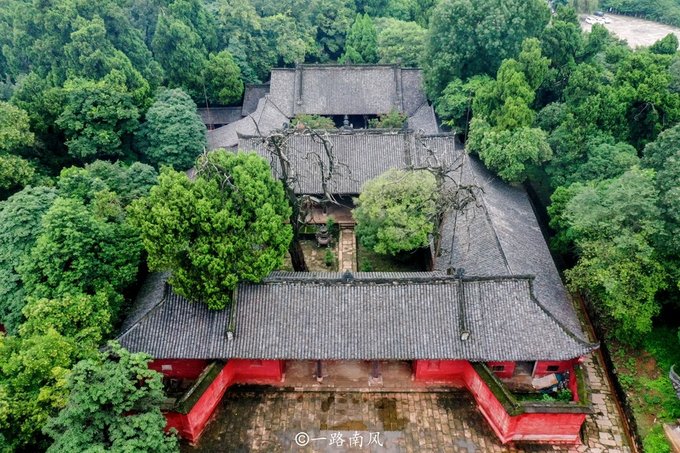
Deyang Pangtong Cimu.
Natural Beauty: The site is surrounded by lush greenery, making it a perfect spot for peaceful walks. Don’t miss the ancient cypress trees, which are said to have been planted by the legendary warrior Zhang Fei in memory of Pang Tong.
Nearby Attractions
Once you’ve explored the tomb, consider visiting these nearby sites:
– Luotong Slope (落凤坡): Located about 2 kilometers from Pangtong Cimu, this historical site is where Pang Tong is said to have fallen in battle. It offers scenic views and a serene atmosphere.
– Baima Pass: A historically significant location that served as a crucial gateway during the Three Kingdoms era.
– Fengchu Village: Known for its rich cultural heritage, this village offers insights into local traditions and the Three Kingdoms culture.
Local Accommodations
For those looking to stay overnight, various accommodations are available in Deyang, ranging from budget hostels to mid-range hotels. Here are a few recommended options:
– Deyang Hilton Hotel: Offers modern amenities and comfortable rooms.
– Jinjiang Inn Deyang: A budget-friendly choice with essential services.
– Local Guesthouses: Provide an authentic experience with local hospitality.
Tips for Visitors
- Best Time to Visit: The ideal time to explore is during spring and autumn when the weather is mild. Avoid the summer months if you’re sensitive to heat, as temperatures can soar.
- Cultural Etiquette: Dress modestly and be respectful when visiting the tomb and shrine. Photography may be restricted in certain areas, so look for signage.
- Guided Tours: Consider joining a guided tour for a more in-depth understanding of the site’s historical significance. Many local guides offer services in English.
Conclusion
Deyang Pangtong Cimu is not just a memorial but a journey through time, offering insights into the Three Kingdoms era’s strategic brilliance and cultural depth. With its serene landscapes, rich history, and dedication to one of China’s legendary figures, this site promises a memorable visit. Whether you are a history buff or simply seeking a tranquil getaway, Pangtong Cimu is worth the visit.
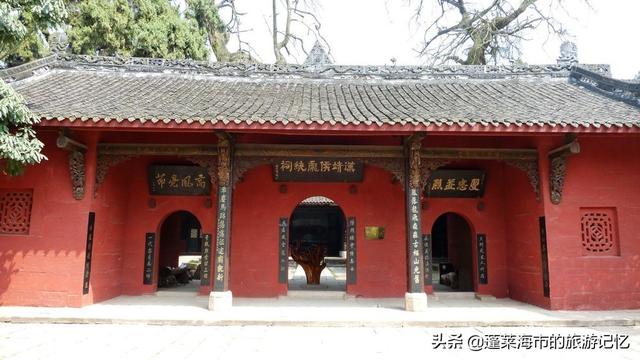
Deyang Pangtong Cimu.
Tickets, Hours, and Booking
Visiting the Deyang Pangtong Cimu (庞统祠墓) offers a unique glimpse into the rich history of the Three Kingdoms period, and purchasing tickets for entry is straightforward. The ticket prices for the Pangtong Memorial Museum are quite reasonable, making it accessible for both local visitors and international travelers alike.
Ticket Information
-
Price: Entrance tickets are priced around 52 HKD (approximately 7 USD), regardless of age, allowing both adults and children to enjoy the experience at the same cost.
-
Operating Hours: The museum operates from 9:00 AM to 5:00 PM daily. On certain public holidays, including the New Year, Spring Festival, Qingming Festival, Labor Day, Dragon Boat Festival, Mid-Autumn Festival, and National Day, the hours are extended to 5:30 PM.
-
Location: The Pangtong Memorial Museum is located approximately 5 kilometers west of the town of Baima Guan in the Luojian District of Deyang City, making it easily accessible for those traveling from nearby regions.
-
Booking: Tickets can be conveniently purchased on-site. However, for a smoother experience, visitors might consider booking in advance through various travel apps or websites that offer local attractions.
-
Payment Methods: Multiple payment options are available, including cash and digital payment methods, which are widely accepted in the region.
Additional Tips
-
Guided Tours: For those interested in a deeper understanding of the historical significance and architectural details of the memorial, consider joining a guided tour. This can enhance your visit and provide context that enriches the experience.
-
Nearby Attractions: Plan some extra time to explore the surrounding area, which includes historical sites such as the ancient Baima Guan and the picturesque natural landscapes that frame the memorial.
With its combination of history, culture, and scenic beauty, the Deyang Pangtong Cimu is a must-visit for anyone interested in the storied past of the Three Kingdoms era.
How to Get There
Reaching Deyang Pangtong Cimu (庞统祠墓) is relatively straightforward, thanks to its convenient location near major transport links. Situated approximately 15 kilometers from downtown Deyang, the site is easily accessible for both local and international travelers. Here’s a detailed guide to help you navigate your way to this historical site.
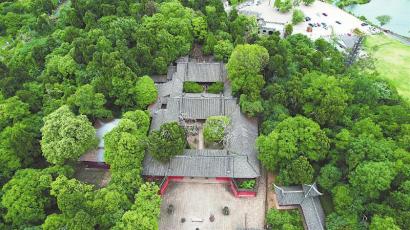
Deyang Pangtong Cimu.
By Air
The nearest major airport to Deyang is Chengdu Shuangliu International Airport (CTU), located about 60 kilometers away. This airport serves numerous domestic and international flights, making it a convenient entry point for travelers. From the airport, you can rent a car, take a taxi, or use a ride-hailing service to reach Deyang directly.
By Train
Deyang is well-connected by rail, with the Deyang Railway Station offering regular services to and from major cities like Chengdu. If you’re traveling from Chengdu, high-speed trains can get you to Deyang in approximately 30-40 minutes. Once at Deyang Railway Station, you can take a local taxi or use a ride-hailing app to reach Pangtong Cimu.
By Bus
For those preferring public transport, buses run frequently from Chengdu to Deyang. The journey typically takes around 1.5 to 2 hours, depending on traffic conditions. Buses are available from various terminals in Chengdu, including the Chengdu Xinnanmen Bus Station. Upon arrival at Deyang’s main bus station, local taxis are readily available for hire.
By Car
Driving to Deyang Pangtong Cimu is an excellent option for those who enjoy the freedom of a road trip. From Chengdu, take the G5 (also known as the Chengdu-Chongqing Expressway), and follow the signs toward Deyang. The drive usually takes about an hour, depending on traffic. Once in Deyang, follow local signs to Bai Ma Guan Town, where the Pangtong Cimu is located.
Local Transportation
Once in Deyang, several local transportation options are available to reach the memorial site:
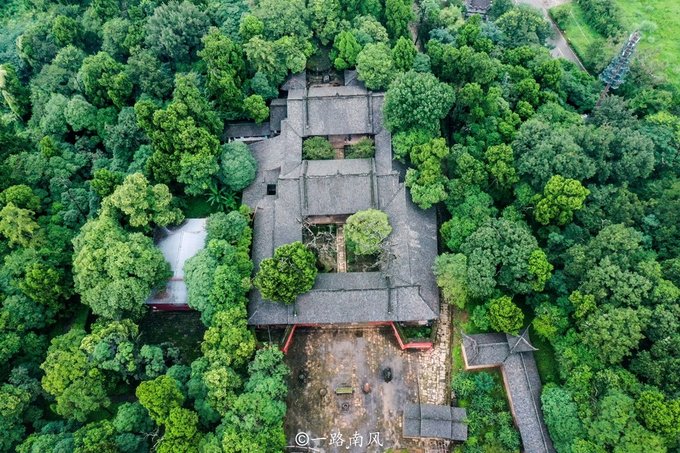
Deyang Pangtong Cimu.
- Taxis: They are widely available and can be hailed on the street or booked through ride-hailing apps like Didi Chuxing.
- Public Buses: While not always the most tourist-friendly, local buses may provide a budget option to reach Bai Ma Guan Town from Deyang city center. It’s advisable to check local schedules, as services may vary.
- Bicycle Rentals: If you’re feeling adventurous, consider renting a bicycle in Deyang to explore the surrounding areas and enjoy the scenic views along the way to the memorial.
Accessibility
The site itself is designed to be accessible for visitors. However, be prepared for some walking as you explore the beautiful grounds surrounding the Pangtong Cimu, nestled among ancient cypress trees and historical architecture.
By planning your journey using these transportation options, you can ensure a smooth and enjoyable visit to Deyang Pangtong Cimu, allowing you to immerse yourself in the rich history of the Three Kingdoms era.
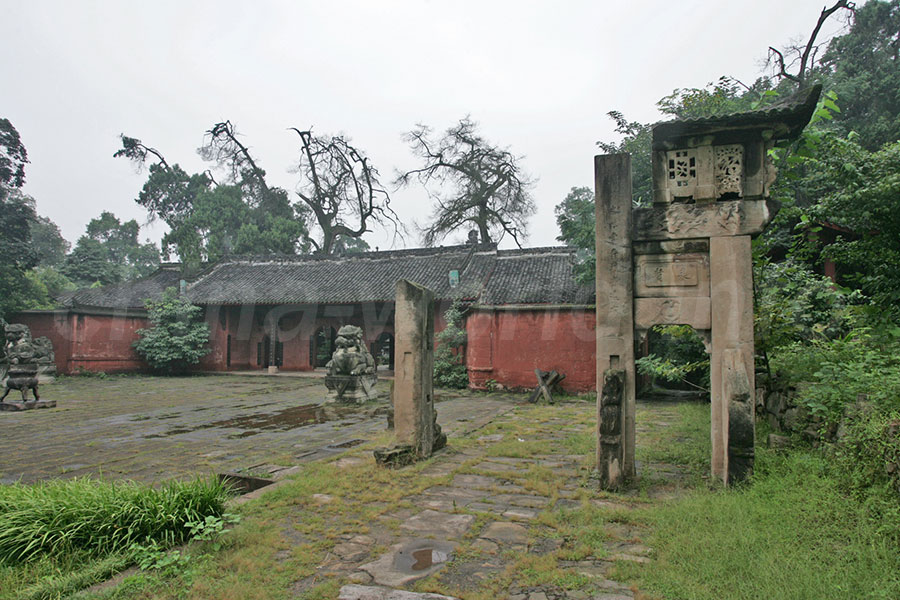
Deyang Pangtong Cimu.
Local Cuisine and Accommodation
Exploring the historic site of Deyang Pangtong Cimu (庞统祠墓) offers not only a glimpse into the rich cultural heritage of the Three Kingdoms period but also a chance to savor local cuisine and find comfortable accommodations nearby. Here’s a guide to enhance your visit with delightful dining options and cozy places to stay.
Dining Options
While visiting the Pangtong Shrine, you can immerse yourself in the local flavors of Sichuan cuisine. Here are some recommended eateries:
-
Vienna Café
Located approximately 19.3 km from Pangtong Cimu, this café provides a relaxed atmosphere perfect for a casual meal or coffee break. Its diverse menu caters to various tastes, and the cozy setting makes it an ideal place to unwind after a day of exploration. -
Jinghu Hotel Banquet Hall
Known for its local dishes, the banquet hall at the Jinghu Hotel offers a taste of authentic Sichuan flavors. Whether you’re in the mood for spicy hot pot or Sichuan-style noodles, this spot is a great choice for a satisfying meal. -
Baxi Jinhu Private Kitchen
This Japanese cuisine restaurant, also situated about 19.3 km from the site, presents a unique culinary experience. Perfect for those looking to try something different, it combines traditional Japanese elements with local ingredients. -
Victoria Global Seafood Buffet
For those who enjoy variety, this buffet offers a wide range of seafood and international dishes. It’s an excellent option for families or groups who want to sample different flavors in one sitting.
Accommodation
After a day of historical discovery, you’ll need a comfortable place to rest. Here are some top-rated hotels near Deyang Pangtong Cimu:
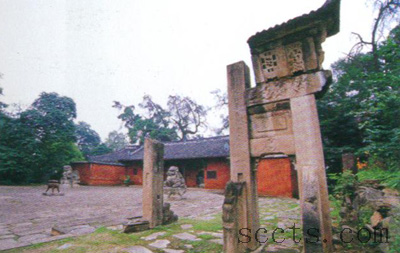
Deyang Pangtong Cimu.
-
Deyang Platinum Hotel (Mole Plaza Branch)
Rated highly for its modern amenities and excellent service, this hotel is perfect for both business and leisure travelers. With comfortable rooms and easy access to local attractions, it’s a great base for your visit. -
Deyang Guanghan Fengdu Hotel
Known for its superior hospitality and amenities, this hotel offers a blend of comfort and convenience. Guests can enjoy well-appointed rooms and easy access to local dining options. -
Yishang Oriental Hotel (Deyang Nan Park Mole Plaza Branch)
This hotel is recognized for its cleanliness and friendly staff. Its strategic location makes it easy for visitors to explore the area while enjoying a peaceful stay. -
Hanrui Zhiyou Hotel (Wen Temple Square High-Speed Rail Station Branch)
With a focus on comfort and accessibility, this hotel is ideal for travelers looking for convenience. The nearby high-speed rail station makes it easy to connect to other destinations in Sichuan after your visit.
Conclusion
Deyang Pangtong Cimu is steeped in history, and your experience can be further enriched by indulging in the local culinary scene and enjoying comfortable accommodations. Whether you are looking for a casual café, a traditional dining experience, or a modern hotel, you’ll find plenty of options to make your visit memorable.
Frequently Asked Questions
-
What is the Deyang Pangtong Cimu (庞统祠墓)?
The Deyang Pangtong Cimu is a memorial site dedicated to Pang Tong, a prominent strategist and military figure during the Three Kingdoms period in China. Located near Baima Pass in Deyang City, it serves both as his final resting place and a site for worship and historical education. -
How do I get to the Pangtong Cimu from Deyang City?
The Pangtong Cimu is approximately 15 kilometers from Deyang City. Visitors can reach the site by car or by local transportation services. It typically takes around 20-30 minutes by car. -
What are the opening hours of the Pangtong Cimu?
The memorial is generally open from 9:00 AM to 5:00 PM. However, during major holidays such as the New Year, Spring Festival, and National Day, it may extend its hours to 5:30 PM. -
Is there an admission fee to visit the Pangtong Cimu?
Yes, there is an admission fee to enter the memorial. The price is typically around 52 Hong Kong dollars (approximately 7 USD). It’s advisable to check in advance for any changes or special pricing. -
What can I expect to see at the Pangtong Cimu?
Visitors can explore the architectural layout featuring a grand entrance, several halls, and the tomb itself. The site is adorned with ancient cypress trees, historical inscriptions, and statues of Pang Tong and Zhuge Liang, contributing to its solemn and historical ambiance. -
Are there any guided tours available at the Pangtong Cimu?
Yes, guided tours are often available and can enhance your understanding of the site’s historical significance. It’s recommended to inquire about these services upon arrival or check for any pre-arranged tours online. -
What nearby attractions should I visit after the Pangtong Cimu?
After visiting the memorial, you might consider exploring the ancient Baima Pass, the nearby ancient town of Daowan, or the scenic Lofeng Slope, known for its historical ties to Pang Tong’s life and battles. -
Is photography allowed at the Pangtong Cimu?
Generally, photography is permitted within the memorial grounds, but be respectful of the site’s cultural significance and any posted guidelines regarding specific areas or items.
Final Thoughts on Your Trip
Visiting the Deyang Pangtong Cimu offers more than just a glimpse into the rich tapestry of China’s Three Kingdoms era; it invites you to step back in time and engage with the legendary stories of loyalty, valor, and strategic brilliance. As you wander through the serene grounds of the memorial dedicated to the esteemed strategist Pang Tong, you’ll find yourself enveloped in a sense of reverence and nostalgia. The intricate architecture, towering ancient cypress trees, and the surrounding natural beauty evoke a profound connection to the past.
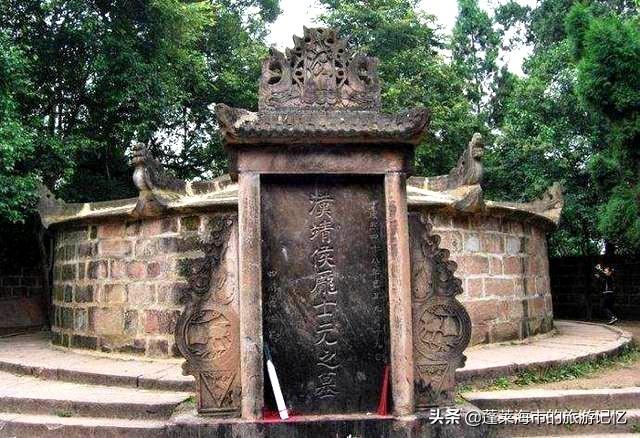
Deyang Pangtong Cimu.
Whether you are a history enthusiast, a culture seeker, or simply someone looking for a tranquil escape, this site is a treasure trove of experiences waiting to be uncovered. The blend of historical significance and stunning scenery makes it a must-visit destination for anyone traveling through Sichuan. As you leave, take a moment to reflect on the enduring legacy of Pang Tong and the lessons of history that resonate through the ages. Let your visit inspire a deeper appreciation for the stories that shape our world, and consider the impact of wisdom, courage, and resilience in your own journey.
